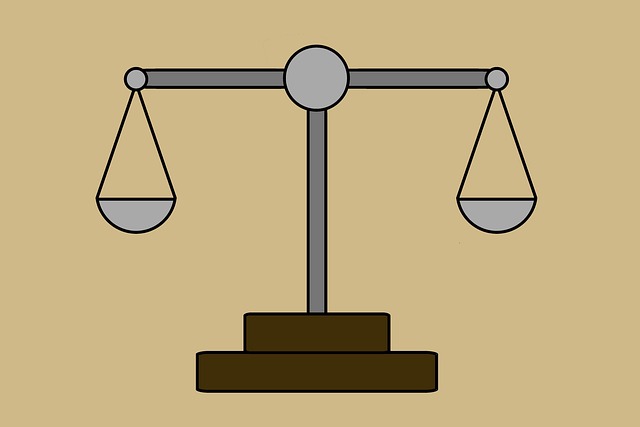Contempt of court cases in Multnomah County, Oregon, involve non-compliance with legal judgments, requiring strategic approaches. Key concepts include direct and indirect contempt, civil and criminal proceedings, and specific court procedures. Legal professionals navigate these disputes by balancing judgment enforcement and case-specific circumstances using tactics like motions, wage garnishments, and asset seizures. Effective strategies demand meticulous attention to detail, clear communication, and understanding local laws, ensuring compliance with court orders and maintaining judicial integrity. Oregon's court procedures prioritize fairness and integrity through structured processes and legal representation for all parties involved.
Contempt of court cases can be complex and emotionally charged, often requiring specialized knowledge to resolve. This comprehensive guide explores the intricate world of legal enforcement of court orders, focusing on Multnomah County contempt disputes. We delve into unique considerations specific to this region, offering practical strategies for achieving compliance with legal judgments. Additionally, we present effective contempt legal strategies and provide an invaluable Oregon court procedures overview, empowering individuals to navigate these challenging scenarios successfully.
- Understanding Contempt of Court Cases: Definitions and Key Concepts
- Legal Enforcement of Court Orders: Roles and Responsibilities
- Navigating Multnomah County Contempt Disputes: Unique Considerations
- Compliance with Legal Judgments: Strategies for Success
- Exploring Contempt Legal Strategies: Effective Approaches
- Oregon Court Procedures: A Guide to Resolving Contempt Cases
Understanding Contempt of Court Cases: Definitions and Key Concepts

Contempt of court cases arise when individuals or entities fail to comply with valid court orders or judgments. This can range from deliberate actions like ignoring a subpoena to more complex situations where there’s a genuine misunderstanding or difficulty in understanding legal obligations. Key concepts include compliance with legal judgments, the legal enforcement of court orders, and the contempt legal strategies available to both parties involved. In Oregon, including Multnomah County, contempt disputes are handled under specific court procedures that require careful navigation to ensure fairness and justice.
Understanding these cases involves grasping the distinction between direct and indirect contempt, as well as civil and criminal contempt proceedings. Direct contempt occurs in the court’s presence, while indirect contempt is proven through evidence of non-compliance with a court order. Civil contempt focuses on compensating the aggrieved party, while criminal contempt carries potential penalties including fines and jail time. Effective contempt legal strategies often require a nuanced approach, balancing the enforcement of legal judgments with an understanding of the unique circumstances behind each case.
Legal Enforcement of Court Orders: Roles and Responsibilities

In contempt of court cases, the legal enforcement of court orders is a critical aspect of ensuring justice and maintaining the integrity of the judicial system, particularly in Multnomah County contempt disputes. This process involves a coordinated effort between various legal professionals, court officials, and enforcement agents to ensure compliance with legal judgments. The primary responsibility lies with the judge or the court, which oversees the execution of orders and can issue sanctions for non-compliance.
Attorneys play a pivotal role in these matters, employing contempt legal strategies tailored to Oregon court procedures. They represent both parties, advocating for their respective interests while guiding them through the complex landscape of enforcement. These strategies may include motions for contempt, wage garnishments, or asset seizures to encourage adherence to court-mandated actions and ensure that all parties involved understand and fulfill their obligations as dictated by the Oregon court procedures.
Navigating Multnomah County Contempt Disputes: Unique Considerations

Navigating Multnomah County contempt disputes requires a deep understanding of both local laws and unique procedural nuances. As one of the most populous counties in Oregon, Multnomah handles a significant volume of contempt of court cases, each with its own set of complexities. Legal professionals must be adept at interpreting and enforcing legal judgments, ensuring compliance with court orders is strictly adhered to.
The county’s court procedures demand meticulous attention to detail, from filing accurate documentation to adhering to strict timeframes. Effective contempt legal strategies often involve a combination of negotiation, mediation, and formal legal action. This ensures that parties in dispute find resolution without unnecessary escalation, while still maintaining the integrity and authority of Oregon court proceedings.
Compliance with Legal Judgments: Strategies for Success

In contempt of court cases, ensuring compliance with legal judgments is paramount to resolving Multnomah County contempt disputes. Parties involved must understand that the legal enforcement of court orders is a serious matter and can have significant consequences if not adhered to. A key strategy for success lies in meticulous attention to detail regarding all aspects of the order, from understanding its terms to implementing them accurately.
For instance, in Oregon court procedures, clear communication between all parties and regular updates to the court are essential. This includes keeping records of actions taken, providing evidence of compliance, and being prepared to address any discrepancies promptly. Legal strategies should focus on proactive measures to ensure adherence, such as seeking clarification early on if certain aspects of the order are unclear, and having a comprehensive plan in place for executing the order’s requirements.
Exploring Contempt Legal Strategies: Effective Approaches

When faced with a contempt of court case, understanding various legal strategies is paramount to resolving disputes effectively. In Multnomah County and throughout Oregon, contempt legal strategies focus on ensuring compliance with legal judgments and orders. One key approach involves assessing whether the alleged contemnor has willfully violated a court order and gathering substantial evidence to support the claim. This process often necessitates a thorough review of documentation and communication with witnesses or relevant parties.
Effective representation in contempt disputes requires a deep understanding of Oregon court procedures. Lawyers can leverage this knowledge to navigate complex legal landscapes, ensuring their clients’ rights are protected. By employing strategic arguments, presenting compelling evidence, and adhering to procedural rules, legal professionals can facilitate a resolution that upholds the integrity of the judicial system while prioritizing fairness for all involved parties in Multnomah County contempt disputes.
Oregon Court Procedures: A Guide to Resolving Contempt Cases

In Oregon, resolving contempt of court cases involves understanding and adhering to specific court procedures. For instance, in Multnomah County, contempt disputes are typically handled through a series of structured steps designed to ensure compliance with legal judgments. The process often begins with an application or motion filed by the aggrieved party, detailing how the respondent has failed to meet their obligations as per the court order. This documentation is crucial as it provides a clear record for the court to evaluate the contempt allegations.
Legal enforcement of court orders is a key aspect of these proceedings. The court will examine whether there has been non-compliance and consider appropriate legal strategies to resolve the dispute. These strategies may include fines, community service, or even jail time for severe cases. Oregon court procedures emphasize the importance of both parties being represented by legal counsel, which ensures a fair and just outcome. This structured approach helps maintain the integrity of the judicial system while facilitating compliance with legal judgments.






